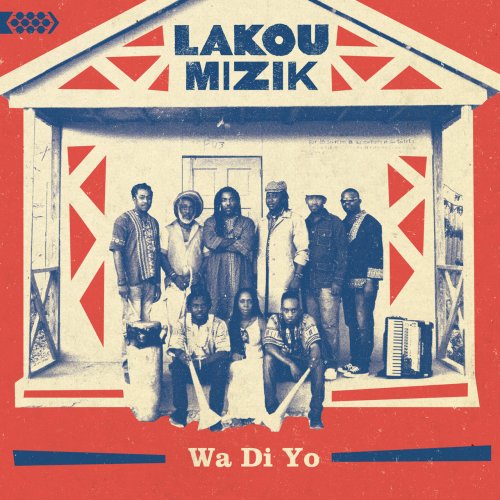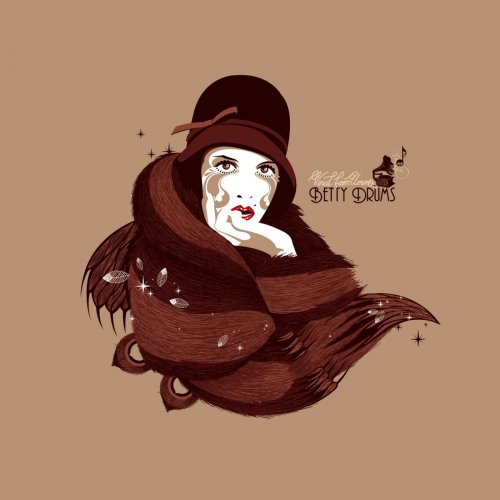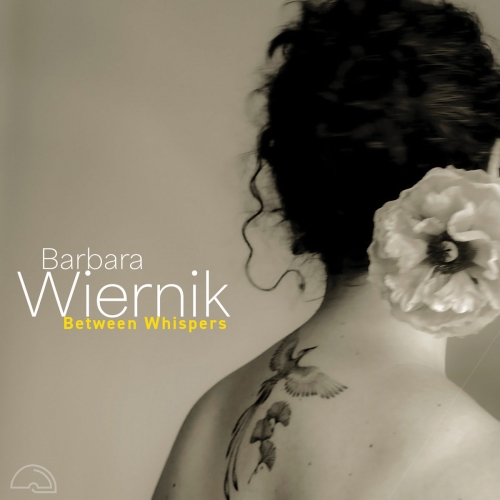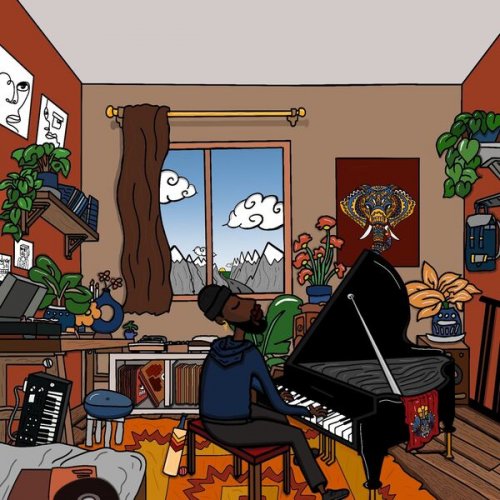Lakou Mizik - Wa Di Yo (Bonus Tracks Version) (2016)

Artist: Lakou Mizik
Title: Wa Di Yo
Year Of Release: 2016
Label: Cumbancha
Genre: World
Quality: FLAC
Total Time: 58:59
Total Size: 394 MB
WebSite: Album Preview
Tracklist:Title: Wa Di Yo
Year Of Release: 2016
Label: Cumbancha
Genre: World
Quality: FLAC
Total Time: 58:59
Total Size: 394 MB
WebSite: Album Preview
1. Intro: Morning In Jacmel (0:10)
2. Poze (3:18)
3. Panama’m Tonbe (3:16)
4. Anba Siklòn (4:39)
5. Bade Zile (1:21)
6. Zao Pile Tè (6:37)
7. Tanbou’n Frape (4:07)
8. Peze Kafe (4:13)
9. Pran Ka Mwen (4:03)
10. Is Fa Ti Bo (3:42)
11. Parenn Legba (1:45)
12. Wa Di Yo (6:33)
13. Bon Tan (4:15)
14. Se Ayiti Wi! (Kanaval Version) (5:20)
15. Se Ayiti Wi! (La La Land Mix) (5:44)
Lakou Mizik Brings New Life to Haitian Roots Music. The fabric of a community is always tested and often damaged in the wake of conflict or disaster. When the earthquake of January 12, 2010 struck Haiti – the world watched in horror as apocalyptic images emerged from the nightmare. These images would dominate international news stories for months. In these darkest hours when the streets were still filled with the wreckage of what once was, above the sorrow and confusion rose the sounds of songs. Vodou chants, gospel ballads and folk songs filled the air in a brave attempt to deal with the overwhelming despair. Music, as it has through every tragedy and triumph in Haiti's convoluted history, soothed, inspired, healed and brought people together. Formed in the wake of this unprecedented tragedy, Lakou Mizik is a diverse collection of musicians representing a cross section of generations, faiths and musical styles. On April 1, Lakou Mizik release their debut album on the Cumbancha Discovery label, calling out to the world, Wa di yo, nou la toujou - "You tell them, we're still here"! The nine members of Lakou Mizik range in age from late sixties to early twenties and come from across Haiti's musical, social, religious, and geographic spectrum. Each has a powerful story to tell: the young poet who survived a ferry disaster that claimed up to 1500 lives - floating in the ocean for 3 days on the back of a bloated cow carcass before being rescued; the church singer whose home was destroyed in the earthquake and whose Christian faith led her to initially resist singing vodou lyrics; the elder statesman of racine, or roots, music whose deep knowledge of vodou rhythms makes him a living encyclopedia of Haitian culture; the guitarist and singer seeking to emerge from the shadow of his famous father and define his own musical legacy. While each member of Lakou Mizik has a unique tale to tell, they stand united in a mission to honor the healing spirit of their collective culture and communicate a message of pride, strength and hope to their countrymen and world. The idea for the band was hatched on a hot November night in Port-au-Prince in the muggy basement studio of Steeve Valcourt, a guitarist and singer whose father is one of the country's iconic musicians. Still reeling from the earthquake, a cholera epidemic raging and a political crisis with enough tire burning ferocity to close the international airport, Valcourt, singer Jonas Attis and American producer Zach Niles agreed that Haiti's music and culture could serve as an antidote to the flood of negativity. Niles, who ten years previously was part of the documentary film and management team that introduced Sierra Leone's Refugee All Stars to the world, had traveled to Haiti to explore ways in which music could help play a role in recovery and empowering social change. Niles, Valcourt and Attis assembled an exceptional lineup, creating their own musical A-Team, a powerhouse collective of singers, rara horn players, drummers, guitarists and even an accordionist. Over the next few years, the band honed their electrifying live show, presenting hours long concerts that blended the soulful spirit of a church revival, the social engagement of a political rally and the trance-inducing intoxication of a vodou ritual. Finally, after building a devoted local fan base, the band headed to the Artists Institute in Jacmel, home to a beautiful new recording studio and music school built by the We Are the World Foundation to help develop Haiti's music industry. Two veteran music producers joined the group to help create their debut album: Chris Velan, a Montreal singer-songwriter and producer responsible for producing two albums for Sierra Leone's Refugee All Stars, and British producer Iestyn Polson, famed for his work with David Gray, David Bowie, Patti Smith and others. The resulting album reflects the African, French, Caribbean and U.S. influences that collide in Haiti. The spirit-stirring vodou rhythms and call-and-response vocals are supported by the French café lilt of the accordion. Intricate bass lines and interlocking guitar riffs mesh mesmerizingly with the joyful polyrhythmic hocketing of rara horns. These powerful layers are topped by sing-along melodies with inspiring, socially conscious lyrics. The end result is a soulful stew of deeply danceable grooves that feels strangely familiar yet intensely new -- and 100% Haitian. In Haitian Kreyol the word lakou carries multiple meanings. It can mean the backyard, a gathering place where people come to sing and dance, to debate or share a meal. It also means "home" or "where you are from," which in Haiti is a place filled by the ancestral spirits of all the others that were born there. Each branch of the vodou religion has its own holy place, called a lakou, where practitioners may come together in the shade of a sacred Mapou tree. With Wa Di Yo, Lakou Mizik invites listeners to join them in their lakou, to share with them the historical depth, expressive complexity and emotional range of the Haitian people. Emerging from one of the darkest periods in the history of a country with many dark periods, Lakou Mizik presents a feeling of joy, hope, solidarity and pride that they hope will serve as a beacon for a positive future in Haiti.
Download Link Isra.Cloud
Lakou Mizik - Wa Di Yo (Bonus Tracks Version) FLAC.rar - 394.8 MB
Lakou Mizik - Wa Di Yo (Bonus Tracks Version) FLAC.rar - 394.8 MB

![Dela Hüttner’s SwingThing - Pause for a moment (2026) [Hi-Res] Dela Hüttner’s SwingThing - Pause for a moment (2026) [Hi-Res]](https://www.dibpic.com/uploads/posts/2026-02/1770561049_cover.jpg)



![Ari Bragi Karason - Unclear Family (2026) [Hi-Res] Ari Bragi Karason - Unclear Family (2026) [Hi-Res]](https://img.israbox.com/img/2026-02/06/yjelz9np21fbxv7fdk3vpg5p0.jpg)
![The Mr Bongo Edits, Vol. 1-4 (2022-2026) [Hi-Res] The Mr Bongo Edits, Vol. 1-4 (2022-2026) [Hi-Res]](https://www.dibpic.com/uploads/posts/2025-03/1742727562_mr_bongo_edits_collage_square.jpg)
![Oulu All Star Big Band, Ingá-Máret Gaup-Juuso and Jukka Eskola - Davvi Oktavuohta - Pohjoinen yhteys (2026) [Hi-Res] Oulu All Star Big Band, Ingá-Máret Gaup-Juuso and Jukka Eskola - Davvi Oktavuohta - Pohjoinen yhteys (2026) [Hi-Res]](https://www.dibpic.com/uploads/posts/2026-02/1770364798_k6yo0dxz10jkv_600.jpg)
